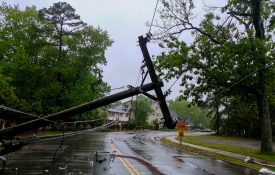-
On the Newsstand: Special Edition (Cont.)
This is a continuation of last month’s special edition of On the Newsstand featuring quotes from media coverage of “Current Status and Future Prospects of Clinical Psychology: Toward a Scientifically Principled Approach to Mental and
-

Lie Detection: Misconceptions, Pitfalls, and Opportunities for Improvement
Researchers discuss some of the common misconceptions about people proficient in the art of deception, and reviews the shortcomings of commonly used lie-detection techniques.
-
Intelligence and Personality May Predict Illness and Death
Do smarter people live longer and better lives? Are certain personality types more prone to premature death than are others? As our population continues to age in dramatic numbers, these questions become increasingly relevant. A
-

Weighing the Costs of Disaster: Consequences, Risks, and Resilience in Individuals, Families, and Communities
A scientific review shows that a psychological intervention commonly employed to help victims who have just experienced a disaster lacks evidence supporting its effectiveness and may actually be harmful.
-
Preschool Promises: Starting Early on a New Educational Agenda for the United States
Two children, both age 3, enroll in publicly funded preschool. But they may have vastly different experiences: One child may attend preschool for 8 hours a day and be taught by a teacher with a
-
Psychological First Aid for Survivors of Disaster
Even as we breathe a sigh of relief watching the rescue of 33 miners trapped in a Chilean mine for more than two months, there is recognition that their recovery from this traumatic experience involves

